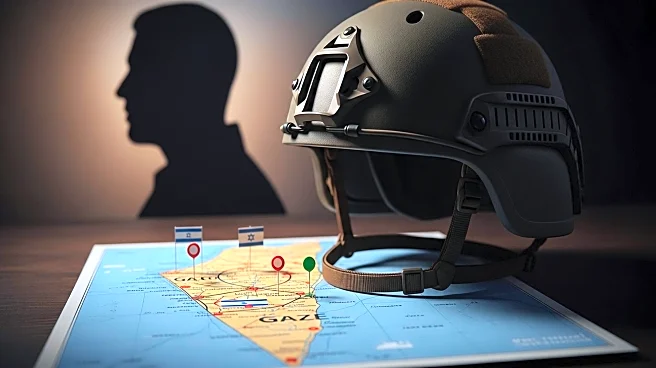What is the story about?
What's Happening?
The Israeli military is engaged in a complex operation in Gaza City, focusing on the capture of the area and dealing with the challenges posed by Hamas' command-and-control capabilities. Under the leadership of Izz ad-Din Haddad, Hamas has improved its operational tactics and rebuilt its tunnel network in the western part of the city. Haddad, considered a moderate compared to his predecessor, Muhammad Sinwar, has been pivotal in maintaining morale and coordinating field operations. The Israeli military is contemplating an attempt to eliminate Haddad, one of the last surviving leaders from Hamas' founding generation. This action could disrupt Hamas' command structure, complicating efforts to negotiate the release of hostages held by various cells within Gaza.
Why It's Important?
The potential elimination of Izz ad-Din Haddad poses significant strategic implications for both Israel and Hamas. For Israel, removing Haddad could dismantle Hamas' centralized command structure, making it difficult to negotiate with a single entity for hostage releases. This could lead to fragmented negotiations with multiple cells, complicating diplomatic efforts. For Hamas, the loss of Haddad could weaken its operational cohesion and morale, impacting its ability to coordinate resistance efforts. The situation underscores the delicate balance of military strategy and diplomacy in conflict zones, with potential repercussions for regional stability and humanitarian conditions.
What's Next?
If the Israeli military proceeds with the elimination of Haddad, it may face increased challenges in negotiating hostage releases, requiring new strategies to engage with disparate Hamas cells. The absence of a central leadership figure could lead to a power vacuum within Hamas, potentially altering the dynamics of the conflict. Israel may need to adjust its military and diplomatic approaches to address the evolving situation. Additionally, international stakeholders may increase pressure for a resolution to the humanitarian crisis in Gaza, influencing future negotiations and military actions.
Beyond the Headlines
The potential removal of Haddad highlights broader ethical and humanitarian concerns in military operations. The disruption of Hamas' leadership could exacerbate civilian suffering in Gaza, as fragmented command structures may lead to increased violence and instability. The situation raises questions about the long-term impact of targeted military actions on peace processes and the ethical considerations of such strategies. It also underscores the importance of balancing military objectives with humanitarian needs in conflict zones.

















